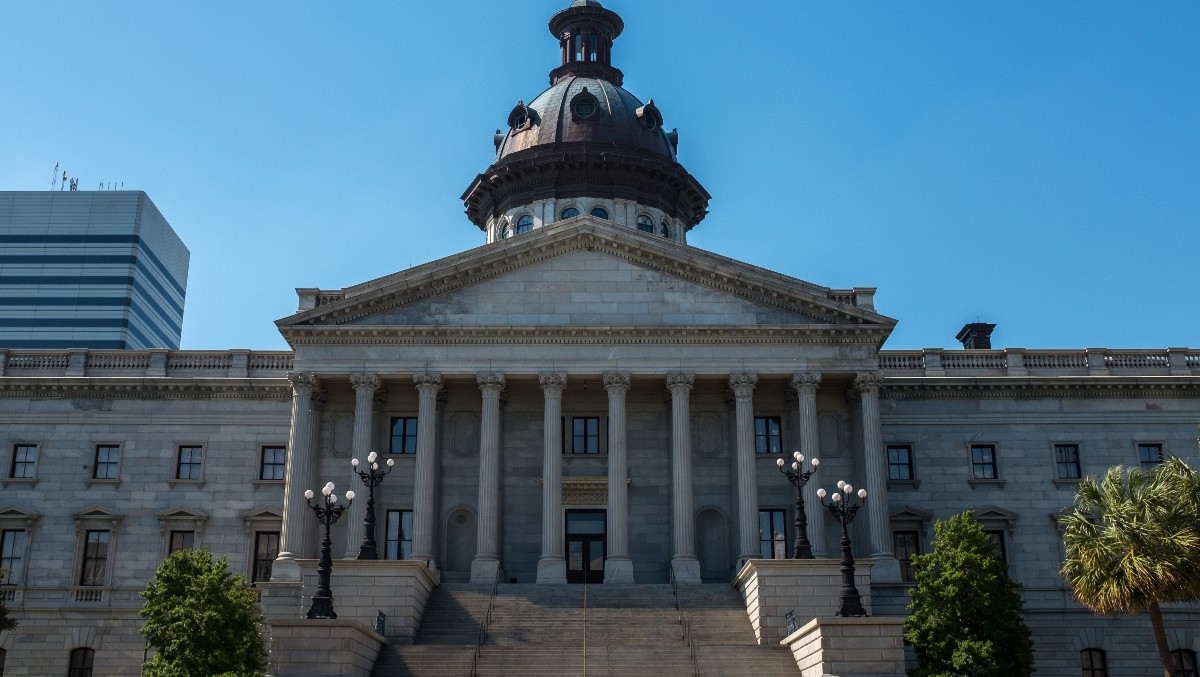OPINION: This article may contain commentary which reflects the author's opinion.
South Carolina Republicans have introduced legislation to make it illegal for employers to ask about coronavirus vaccination status.
Republican Rep. Mike Burns, the bill’s author, said he introduced the bill because it’s private medical information and that unvaccinated individuals are suffering real-world consequences.
“We have people in South Carolina that are losing their jobs because they have to report to their employer that they’re unvaccinated,” Burns said. “We also have people who are having their insurance rates put in a different category. They’re charging up to an extra $100 a week more than the vaccinated people. It is absolutely insane to do this kind of thing.”
The legislation, H. 4848, would make it a criminal offense for any employer, business, nonprofit or public entity to ask about someone’s COVID-19 vaccination status.
“I’m your employer, and I asked you if you’re pregnant, I can’t do that,” Burns said. “I can’t ask you if you’re thinking about getting pregnant. I can’t ask you if you got STDs or HIV. I can’t ask any of those private medical questions, but somehow it’s alright to terminate people’s employment because I didn’t take this emergency-use-only vaccine. This is ridiculous.”
The legislation makes asking vaccination status a misdemeanor, that carries a fine of up to $14,000 and/or one year in jail.
Burns acknowledged the legislation has little chance of becoming law since only “about 5% of all the bills” that are filed become law.
Still, Burns said he wanted to take action because “people are getting pretty sick and tired of these mandates.”
Republican state Rep. Bill Chumley served as one of the co-sponsors of the newly-proposed bill.
“South Carolina didn’t want to get in this fight,” Chumley said. “It was brought to us by the federal government.”
“States have a right to impose certain laws if they want to, and to not impose others we feel are unconstitutional,” he added.
A few weeks ago, the U.S. Supreme Court blocked the Biden administration’s emergency rule that would have forced large employers to vaccinate or regularly test their employees.
“OSHA’s COVID–19 Vaccination and Testing; Emergency Temporary Standard, 86 Fed. Reg. 61402, is stayed pending disposition of the applicants’ petitions for review in the United States Court of Appeals for the Sixth Circuit and disposition of the applicants’ petitions for writs of certiorari, if such writs are timely sought. Should the petitions for writs of certiorari be denied, this order shall terminate automatically. In the event the petitions for writs of certiorari are granted, the order shall terminate upon the sending down of the judgment of this Court,” the court concluded in a 6-3 decision.
The Supreme Court also struck down a Biden administration order mandating that federal employees be vaccinated against COVID-19.
Prior to the Court’s ruling, U.S. District Judge Jeffrey Brown ruled against the Biden administration, arguing that the president lacked the authority for the decision.
“The court notes at the outset that this case is not about whether folks should get vaccinated against COVID-19—the court believes they should. It is not even about the federal government’s power, exercised properly, to mandate vaccination of its employees,” Brown wrote.
“It is instead about whether the President can, with the stroke of a pen and without the input of Congress, require millions of federal employees to undergo a medical procedure as a condition of their employment. That, under the current state of the law, as just recently expressed by the Supreme Court, is a bridge too far,” the judge said.
